DJ Khaled grew raised with money. The future producer-rapper witnessed his parents sell garments out of their car at flea markets and put the money in a pouch around his waist as a toddler in New Orleans. Later, when they had their own store, he heard the cash register.
After his family’s retail companies were destroyed by “a bad accountant” when he was 17, Khaled’s street-level entrepreneurial experiences shaped his life.
At 47, Khaled absorbed those harsh lessons. He’s an outstanding artist and entrepreneur known for his catchphrases (“We the best!” “Another one!” “Bless up!”), which feature guest appearances from Jay-Z, Beyoncé, Rihanna, Drake, Lil Wayne, and others.
According to Jay-Z, Khaled brings wonderful energy to every environment. His passion and drive are contagious. His encouragement of artists, athletes, and philanthropies pushes everyone to achieve the impossible.”
His mansion in an exclusive Miami Beach area shows Khaled’s massive success. The large modern building with 10 bedrooms, 10.5 bathrooms, and two chef’s kitchens houses Khaled, Nicole Tuck, and their two young sons. A private dock and six car and golf cart parking are available. Another building houses a music studio and guest accommodations (its highlight: a $20,000 Japanese toilet-bidet donated by Drake), a playground, a basketball court, and a putting course. Diddy, Timbaland, Post Malone manager Austin Rosen, and Shakira are neighbors.
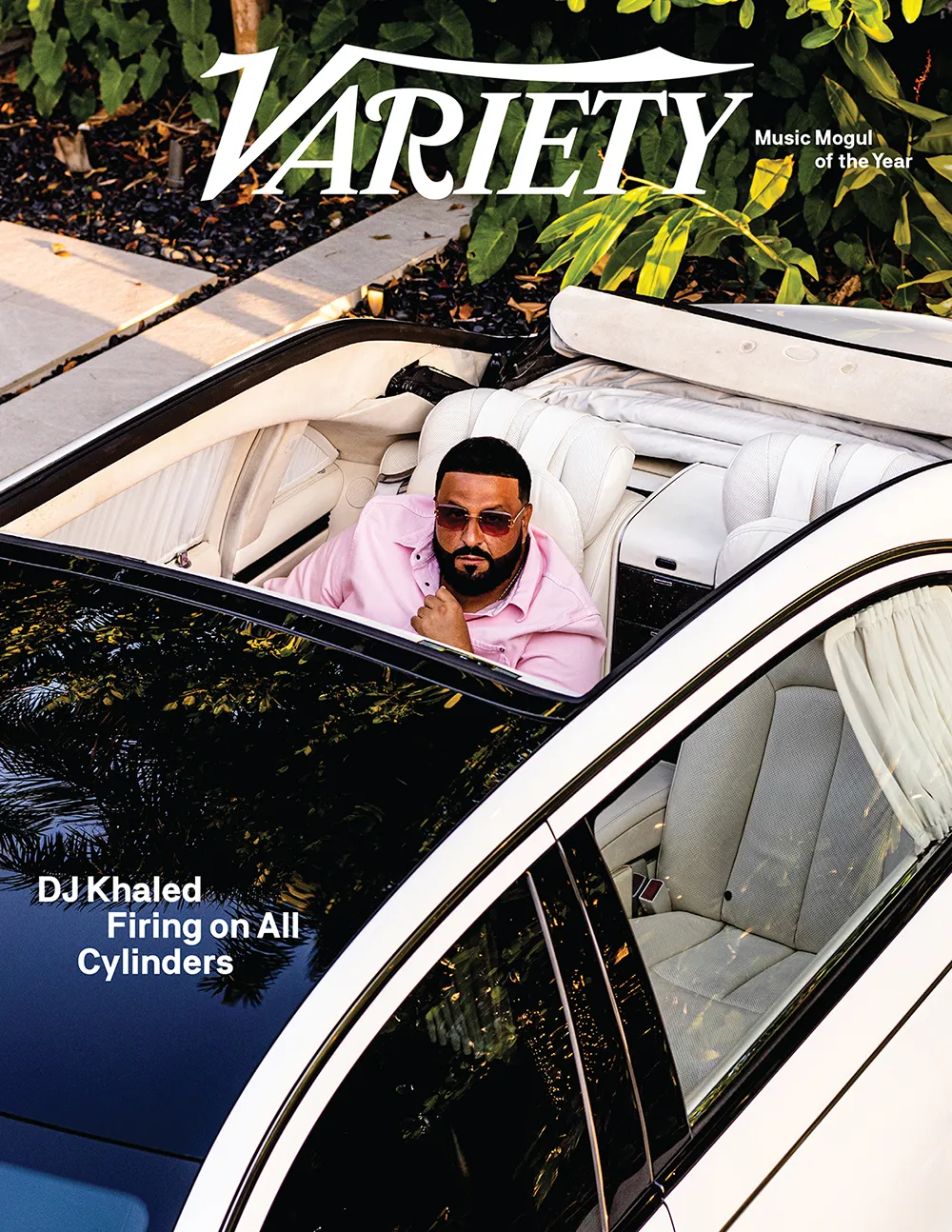
Variety named Khaled Music Mogul of the Year for his groundbreaking hip-hop career. Despite fame and money, his parents’ work ethic and experience are remembered. Khaled says he still handles all of his business transactions personally, including paying the bills for his 15,000-square-foot house, which he bought for $26 million in 2018.
Khaled says, “I don’t let nobody pay nothing for me. “I pay the grass guy, studio electric bill, everything. Not trusting business managers. I got here by not giving anyone my money since there are too many stories. My secret to success is taking care of everything because it motivates you to obtain more. Doing it live lets you nearly ready to pivot.”
Khaled hasn’t been accused of being outdated. Since 2006, he’s released 13 albums, four of which debuted at No. 1 on the Billboard 200, and seven Top 10 singles, including “Wild Thoughts” (featuring Rihanna and Bryson Tiller), “I’m on One” (featuring Drake, Rick Ross, and Lil Wayne), “I’m the One” (with Justin Bieber, Lil Wayne, Quavo, and Chance the Rapper), “Popstar” (another Drake-assisted hit), and “All I Do Is Win” (featuring T-Pain, Ludacris, His We the Best brand has earned him six-figure song licensing payments and endorsement relationships with Mentos, Champs Sports, Apple Music, and others. He has appeared in Geico, Doritos, and TurboTax ads. DJ Khaled ads have aired 63,537 times in the past 30 days, according to iSpot.TV.
Khaled is the expert on his business success. He says family defines him, not chart status or streaming minutes.
“It’s all for them,” says Khaled, sitting on one of his seven couches in the ground-level living area. “Everything—the house, cars, watches, music… Jay-Z said, ‘Wait till you have a kid — that’s when life really starts.’ My life altered when my kids were born. Both these blessings and my mindset. Money doesn’t define success. Moguls aren’t defined by money. I define success as happiness.”
Khaled defines “mogul” as “a person that broke down every barrier to live their dream, and accomplished their goal even when the door was closed and people said it’s not possible.”
After growing up in New Orleans, Palestinian-born Khaled Mohamed Khaled moved to Miami in his teens. He idolized Michael Jordan, studying his business career aside from basketball. I’ve been saying for years, ‘Be the best in all areas,’ like Jay-Z. I always wanted a No. 1 record and a classic anthem.” (Finished.) But I knew: I’m an entrepreneur and hustler.”
The hustling is now folklore. After deejaying and hosting parties in his teens, he worked at Odyssey Records in New Orleans, where he met Lil Wayne and Cash Money Records founders Bryan “Birdman” and Ronald “Slim” Williams in the early 1990s. His DJ gigs paid more and led to independently released mixtapes, major-label deals (he left Sony’s Epic Records for Universal subsidiary Def Jam in February), agency contracts (he’s managed by Jay-Z’s Roc Nation and has been with UTA for seven years), and dozens of high-wattage features from hip-hop’s biggest names. Anyone who doubts his credentials and thinks he only rants on songs doesn’t know what a producer is: someone who makes the record.
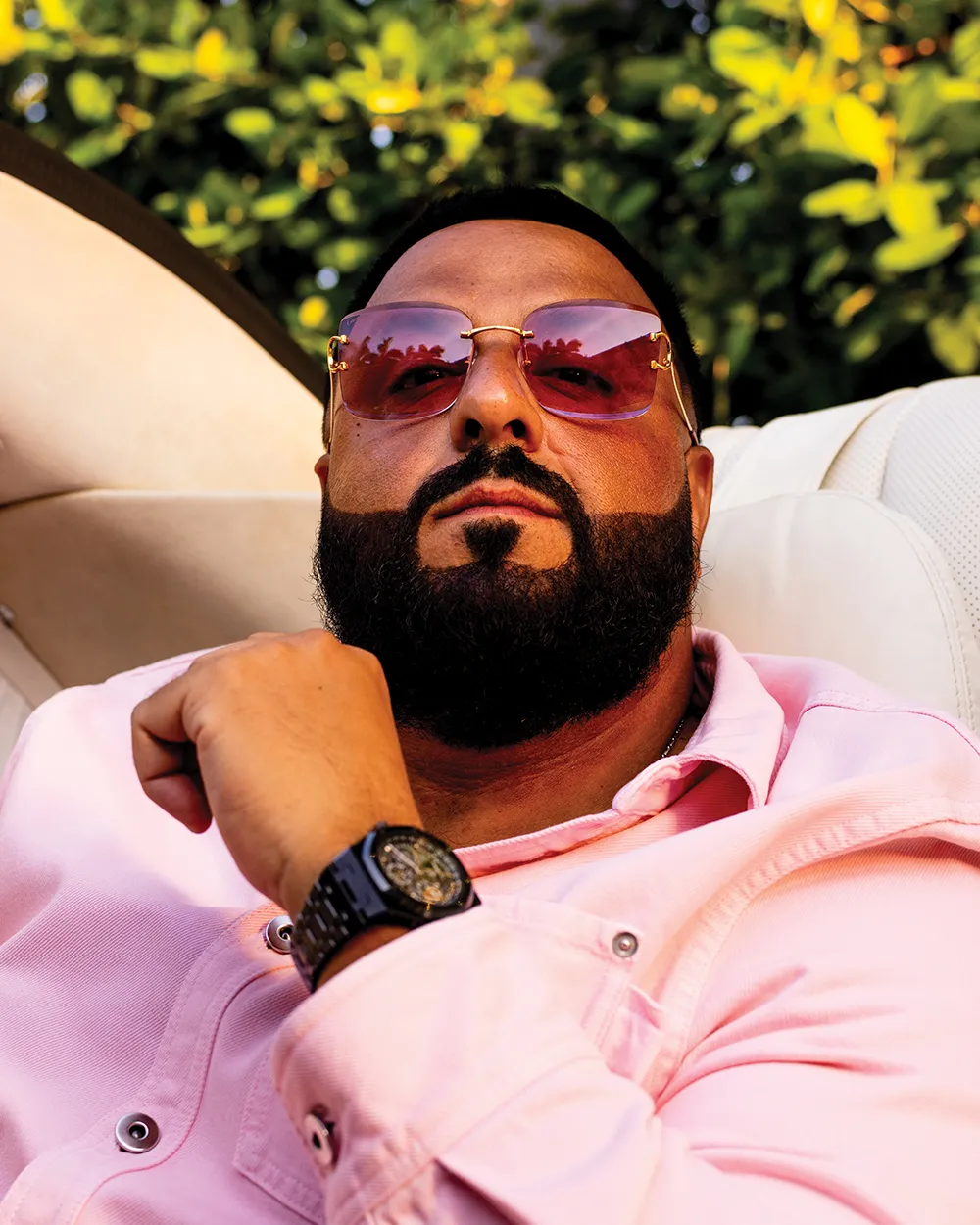
Due to his recording deals and six-figure A-list appearance fees, Khaled is a big investment for record labels. He’s seen almost every agreement as an artist and executive (he was president of Def Jam South from 2009 to 2011) and has worked out the cheat code to maximizing music profits: Own your job.
“For most of my career, I’ve owned half my masters of everything I’ve done,” Khaled explains. I always handled my business smartly, and it paid off. The term is leverage. Your masters are meaningless without a good one. ‘All I Do Is Win’ is a good master. “Wild Thoughts” is a good master. I make most of my records, although sometimes I work with others.”
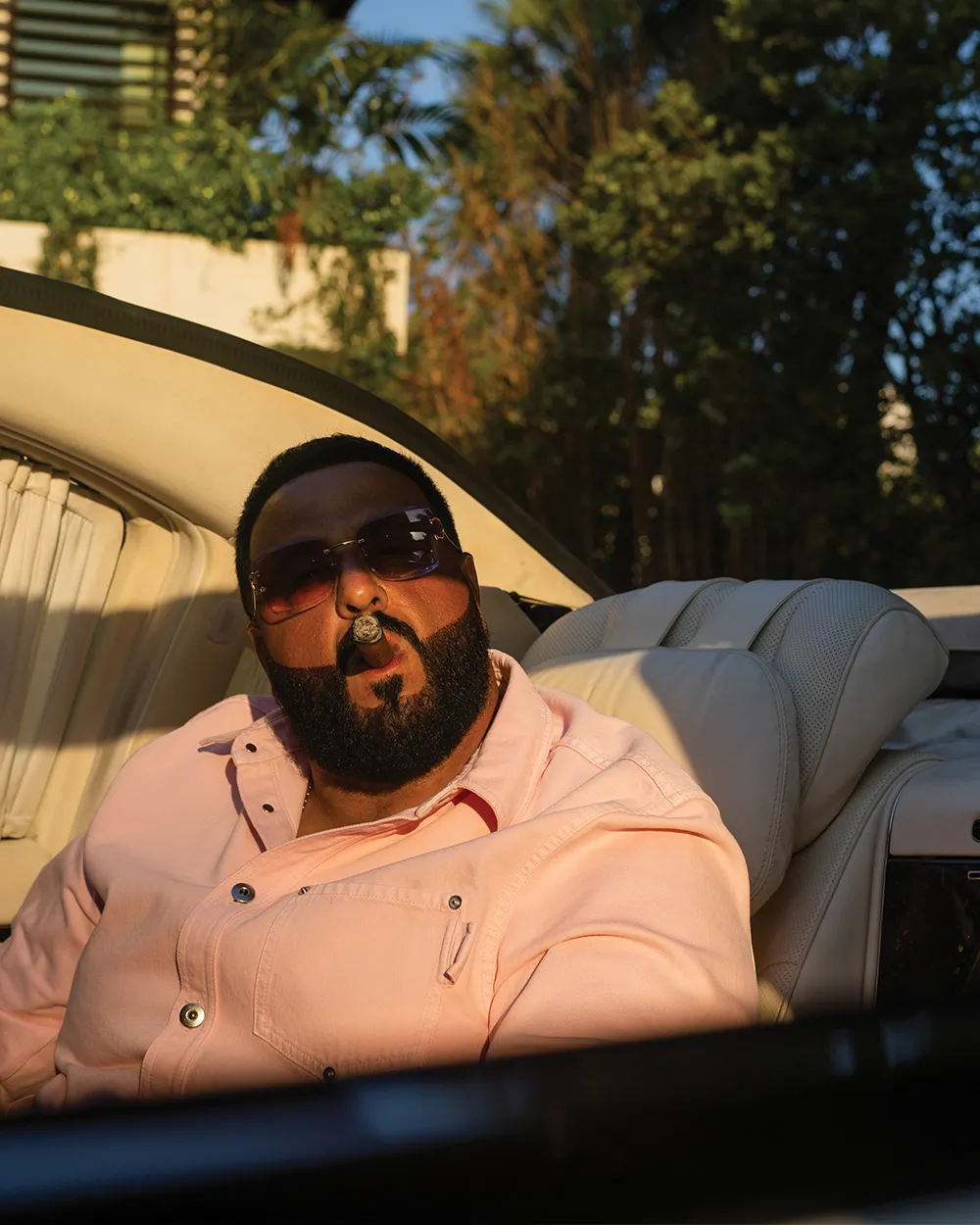
As an artist, producer, and co-writer, he earns streaming and sales revenue, publishing royalties, and recording producer points. Of his features, Khaled says, “We share pieces together, even on the master side sometimes.” Does royalty splitting ever get contentious? “I don’t do that,” Khaled says. I’ve worked with performers that want to discuss splits before the magic. Very lame. Not rocket science. We shared it and finished. Love is shown.”
Def Jam CEO Tunji Balogun considers Khaled a “ultra-reliable hitmaker” who creates a “culture of winning” among his team. “Being in the DJ Khaled business means you are part of that energy, you are supporting that effort, and you are drafting the connectivity and relationships that are so central to his success,” Balogun says.
Khaled advises “being consistent” to succeed in music. I received nothing for several of my early music deals, but I was appreciative. People whine about terrible deals and getting fucked. It was the opposite: “Thank you.” This opportunity taught me. Some believed in me. A better offer is possible, but I’ll grab it next time. I told myself, ‘I’m building for my family.’”
He has named his two boys, Asahd, 6, and Aalam, 3, executive producers on his albums, giving them lifetime profits and privileges. Khaled calls “mailbox money,” the little but continuous stream of checks sent to hit songwriters before the internet age, “forever money.” He describes 2010’s “All I Do Is Win”: “It’s not like it’s hot this year and it’s over, right? Everyone wins with this song. Super Bowls, basketball events, marching bands, the airport—you hear it everywhere.”
He claims “All I Do Is Win” receives several sync requests daily. Khaled, CEO of We the Best Music, personally reviews each offer. “I show love,” he says of his approval (process). “I clear anything for anyone if it’s used for love and nothing negative. Getting clearance is a blessing. Some are little, but major corporations and brands can be quite profitable.” Coca-Cola, QuickBooks, and Walmart use “All I Do Is Win”. Millions from syncs is a conservative estimate.
That DJ Khaled has time to handle such minute career concerns in his tremendously hectic schedule is surprising, but it shows how much his parents have influenced him. Khaled says they opened a store, got an apartment, and then a little house after starting in retail. Living the American dream. “I remember these steps as a kid,” he recalls. “But it all ended when I was 17. They lost their stores, so we started over.”
A tax probe ruined his parents’ finances. “My dad had a bad accountant,” Khaled explains. “They audited him and took everything. My parents left Florida and moved to New Orleans to start over, and I said, ‘I’m gonna stay here, with your blessing, because I feel like my love for music might carry me to where I need to go, and to be able to take care of you.’ My parents prompted me to act early.”
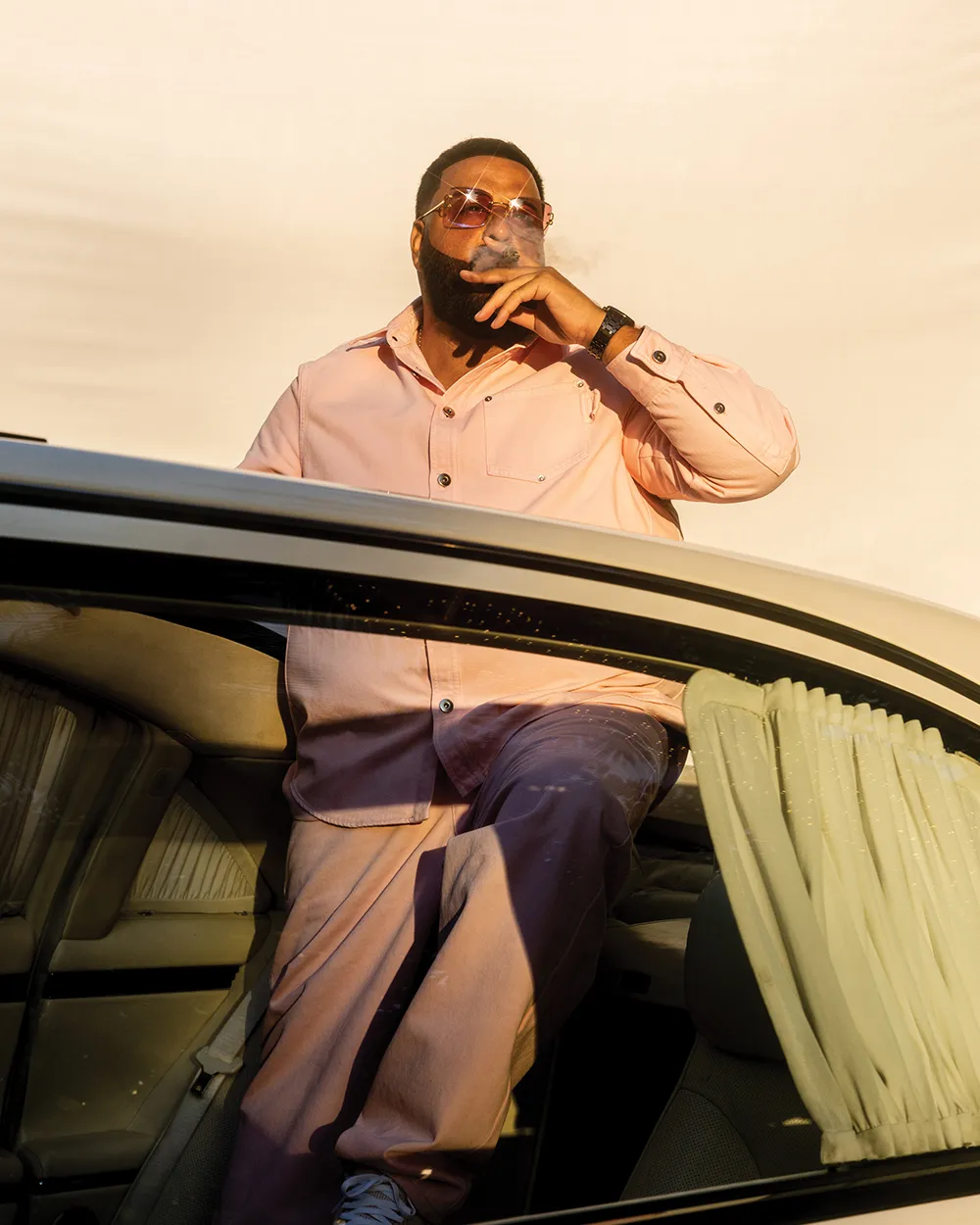
Khaled plays golf with discipline, along with other CEO perks. He practises regularly (weather allowing) on the course and has spent months honing his stroke with a right ankle twist. “I lost eight pounds in the last two weeks,” he says, only to be reminded that he has said, in earlier interviews, “I’m a winner so I don’t lose anything; I get rid of weight.”
“You’re absolutely right,” Khaled laughs. Others go to the gym or do yoga; I golf. I walk; I sweat; the sun hits me; I’m vibrant.”
Beyond staying in shape, Khaled wants his kids to learn that to succeed in basketball or life, you must keep trying. Even though he says “all I do is win,” he assures his kids there’s more. “That’s how I see life: Show up and be great and you won,” he says. We want the trophy, but happiness, health, and family are wins. We desire plaudits and a room full of prizes, but they don’t define us.
Despite his wealth, Khaled’s bank is inferior than Drake’s. The Canadian superstar released his first mixtape in 2006, and the two have had several successes together. Seven Khaled tracks include his pal. Listening to Khaled praise Drake is idol worship. He lists the rapper as “Drake Top Secret,” “Drake New 2020,” “Pop Star,” and “Drake Top Secret 5” on his phone.
Drake and Nicki Minaj were contracted to Lil Wayne’s Young Money label, where they met. Khaled explains, “I knew anyone coming out of Wayne’s studio was gonna be serious,” but Drake stood out with his style, rapping and adding melodies, it felt natural. When you met him, you realized he was special.”
In Drake’s early career, Khaled was BIG. Khaled recalls Drake telling him about a failed MySpace message years previously. Khaled laughs, “I don’t know how to work all that MySpace shit,” because his Instagram presence is unmatched, with roughly 35 million followers and 40,000 posts. He helped Snapchat become popular.
Since Drake has a toddler, they bond over having kids. Khaled calls Drake’s family “beautiful” and says his friend’s 5-year-old kid, Adonis, “plays basketball good too.” Drake’s Toronto home, at 50,000 square feet, can fit an NBA-sized court.
“That house is unbelievable because you gotta remind yourself that it’s a house,” adds Khaled. After the basketball court, you’ll be in the studio, and it feels like you’re walking an hour to the indoor pool or club. The marble and lighting are museum-like. You can get lost there. I appreciate that his house is still cozy. His kitchen features the world’s largest countertop, where everyone congregates.”
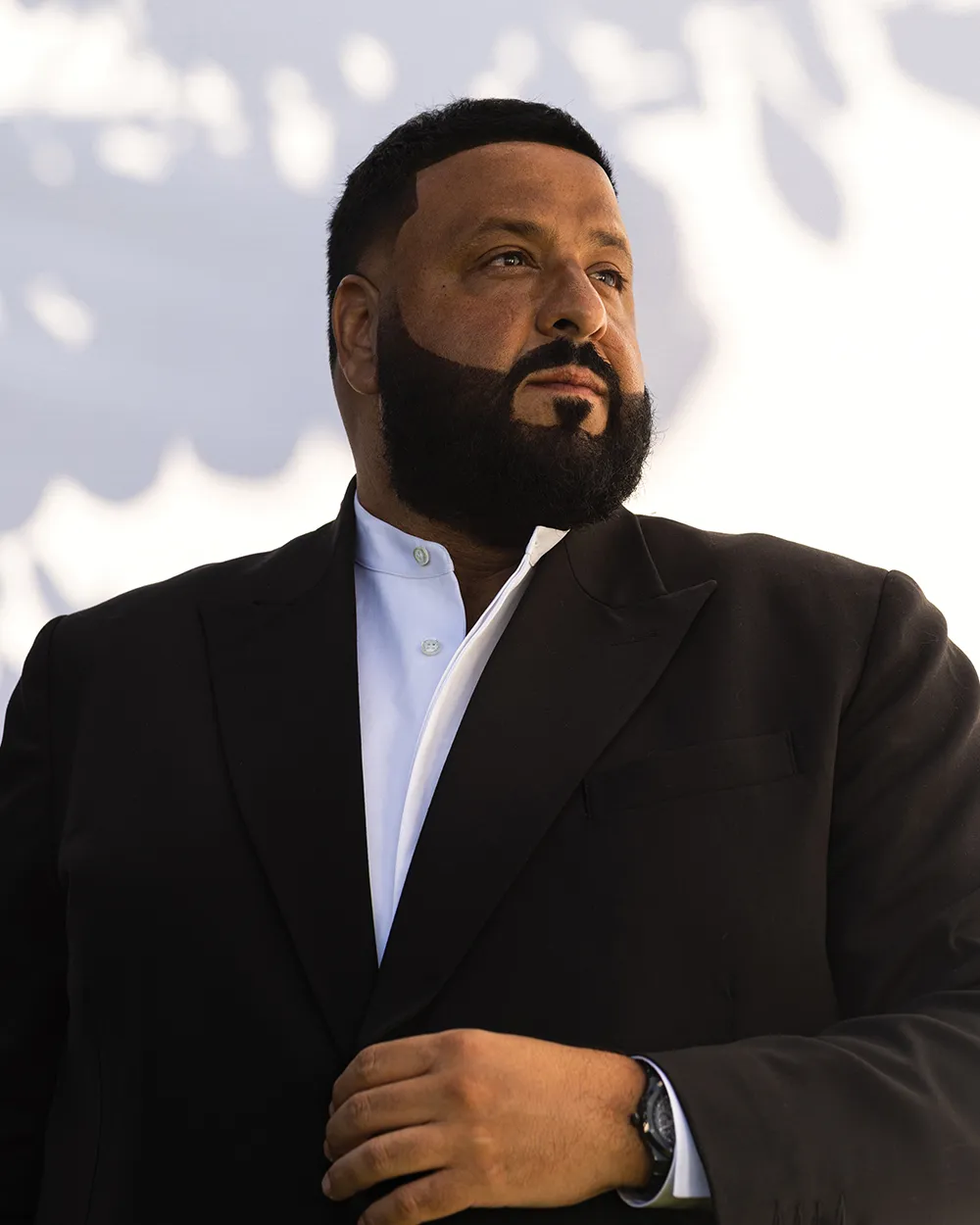
Also true of Khaled’s home. It has three housekeepers, a nanny, two chefs, and security, but it feels cozy despite its size. Nicole started a preschool for their children and neighbors during COVID-19. We created a home pod for everyone when schools were closed and parents were afraid to bring their kids. The city granted permission, and school began.”
What happens when your love for all turns to hate? The statements regarding Jews by Khaled’s longtime buddy and colleague Kanye West came to mind. West tweeted in October 2022, “You guys have toyed with me and tried to black ball anyone whoever opposes your agenda.” He threatened “death con 3” on “Jewish people.”
Khaled: “I wouldn’t let nobody on my project disrespect nobody like that. I pray for Kanye. The only way is love. He knows I’m about that.”
Khaled mentions “God” at least 60 times and “bless” over 80 times in this three-hour conversation. He visited Mecca last December, as the Quran requires all male Muslims to do once (he Instagrammed it).
“I’m a big boy, but when I walked into Mecca, I immediately felt like I weighed as much as a feather,” “My body felt light and I cried. Mike Tyson saw me crying and hugged me, whispering, ‘The same thing happened to me my first time here.’”